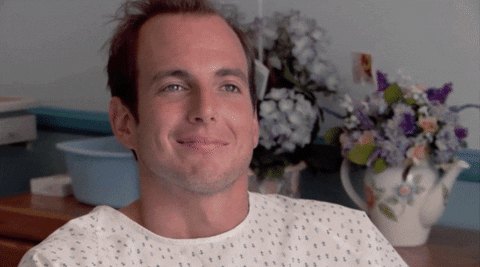Nobody’s perfect. Berkshire Hathaway’s 2020 annual letter starts by admitting a mistake but ends with an optimistic tone about American business. In between, it’s sprinkled with stories from Berkshire’s history and Warren Buffett’s investing career. Let’s dive in.
I’ve Made a Huge Mistake
Even legends make mistakes. In January 2016, Berkshire Hathaway acquired Precision Castparts, a manufacturer of advanced metal components, for $37.2 billion. In 2020, it wrote-down Precision Castparts’ value by $11 billion, a whopper of a mistake. It’s Buffett’s error and he owns up to it. He offers no excuses or rationalizations, a level of forthrightness rare in corporate America.
Buffett’s original sin was being too optimistic about Precision Castparts’ outlook:
No one misled me in any way – I was simply too optimistic about PCC’s normalized profit potential. Last year, my miscalculation was laid bare by adverse developments throughout the aerospace industry, PCC’s most important source of customers...I believe I was right in concluding that PCC would, over time, earn good returns on the net tangible assets deployed in its operations. I was wrong, however, in judging the average amount of future earnings and, consequently, wrong in my calculation of the proper price to pay for the business. PCC is far from my first error of that sort. But it’s a big one.
Buffett doesn’t comment directly on the state of the stock market (his business partner, Charlie Munger, recently called it a speculative orgy). However, reading between the lines, Precision Castparts is part of a cautionary subtext woven through the letter.
A common cause of investing mistakes is paying for what could be instead of what is. Rosy visions of the future are a minefield. Some companies expand their TAM, win market share, and launch popular new products. Some don’t. Handicapping what future you’re paying for is the central challenge of investing. If Warren Buffett can stumble here, anyone can. It’s a reminder to stay humble.

The Lessons of History
Anyone who started investing the last decade has only known bull markets and everyone is a genius in a bull market. Spoiler alert: stocks don’t always go up.
Part of Buffett’s allure is his sense of history. He’s successfully managed through bull markets, bear markets, recessions, expansions, inflation, the JNCO jeans trend, and other aberrations. Few investors have weathered cycles as he has. While reflecting on the history of conglomerates, Buffett again strikes a cautious tone:
Investing illusions can continue for a surprisingly long time. Wall Street loves the fees that deal-making generates, and the press loves the stories that colorful promoters provide. At a point, also, the soaring price of a promoted stock can itself become the “proof” that an illusion is reality. Eventually, of course, the party ends, and many business “emperors” are found to have no clothes.
He could just as easily be talking about SPACs today.
Buffett is similarly weary on the outlook for fixed income, and views reaching for yield as a recipe for disaster:
Some insurers, as well as other bond investors, may try to juice the pathetic returns now available by shifting their purchases to obligations backed by shaky borrowers. Risky loans, however, are not the answer to inadequate interest rates. Three decades ago, the once-mighty savings and loan industry destroyed itself, partly by ignoring that maxim.
History repeats itself. “This time is different” is the most dangerous phrase in finance.
The Attraction of Unsexy Businesses
Boring businesses don’t make for good headlines, but they can make for good investments. Berkshire Hathaway is an amalgamation of wholly owned businesses like Acme Brick Company, BNSF, and Central States Indemnity Company, and partially owned businesses (equity investments) like Apple, Bank of America, and Coca Cola.
Growth is associated with markets like cloud computing and e-commerce, but Berkshire shows that furniture and manufactured homes can be growth markets as well:
Profits at Berkshire Hathaway Energy, a utility, have grown from $122 million to $3.4 billion over the past 21 years, a CAGR of 17%.
Founded in 1956, Clayton Homes, which builds and sells manufactured homes, today generates over $1 billion in annual profits.
Sales at GEICO, an insurer with quirky commercials, grew from $238,288 in 1937 to $35 billion in 2020, a CAGR of 15% over 83 years.
The value of Nebraska Furniture Mart increased from $72,264 in 1946 to $60 million in 1983, a CAGR of 20%.
None of these businesses are sexy, but all have generated impressive results. Great businesses can come from any industry.
Like JNCO jeans, investment fads come and go. Today, electric vehicles are the next big thing. Tomorrow, something else. Hot markets come with lofty expectations. As Precision Castparts shows, rosy expectations can lead to overpaying and poor returns. Emerging industries often produce a few winners and a long list of losers. Another lesson from Berkshire Hathaway is that you don’t need to chase hot markets to generate returns. Indeed, you may be better off eschewing them entirely.
Buffett aims to invest in companies with durable competitive advantages, competent and honest management, and reasonable valuations:
Most owners of such properties will be rewarded. All that’s required is the passage of time, an inner calm, ample diversification and a minimization of transactions and fees. Still, investors must never forget that their expenses are Wall Street’s income. And, unlike my monkey, Wall Streeters do not work for peanuts.
After investing, Buffett sits back and lets compounding take over. With time and patience, boring businesses can produce not boring returns.
Want More From The Buffett?
For more on Buffett, here are lessons from Berkshire Hathaway’s 2019 annual letter including Wall Street incentives, the value of dry powder, and understanding limitations.
For more like this once a week, consider subscribing 👇
👉 If you enjoyed reading this post, please share it with friends!
Disclosure: The author owns shares in Berkshire Hathaway. He also has an intellectual crush on Warren Buffett.


